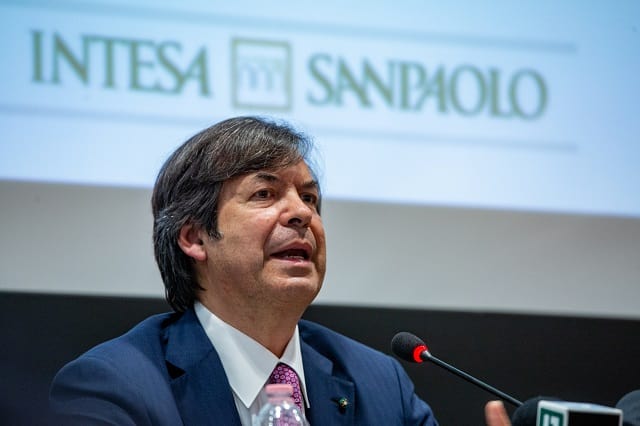A new M&A wave from Italy is likely despite caution over risks.

Intesa Sanpaolo’s (ISP) takeover of smaller lender UBI Banca is likely to spark new interest in Italian banks from large financial institutions looking to become more competitive and benefit from government stimulus measures and a more favorable regulatory environment.
Europe’s largest banking transaction in a decade highlights the compelling role assigned to banks as recovery agents in pandemic-hit economies.
“Covid-19 has shaken the global economy and, for the first time since World War II, banks are seen as key pillars for the recovery instead of crisis-generators and amplifiers,” observes Carlo Murolo, Head of Monitor Deloitte Italy.
The need for large banks to increase their competitiveness and benefit from EU and Italian government growth initiatives is driving interest for deals, Murolo explains.
“For this reason, we do expect ISP-UBI deal to have created the condition for the actual trigger of a new cross-border M&A wave that from Italy could propagate to other countries as well if obtaining synergies from cross border transaction is not easy,” he says.
However, the next merger will need the right conditions to materialize. Carlo Messina, CEO of Intesa Sanpaolo, says consolidation in Europe is not a priority for the bank as it moves to integrate UBI. But the M&A trend is there. “It’s not easy to say what will happen, but in the next years also in Europe, there could be cross-border consolidation,” the CEO told analysts.
A more favorable approach by the European Central Bank towards less stringent capital requirements for sustainable integration plans is likely to encourage consolidation.
Nicola De Caro, Senior Vice President, Global Financial Institutions, DBRS Morningstar, says the Intesa-UBI deal could trigger further consolidation among Italian banks.
“We also expect further domestic consolidation in the Italian banking sector,” Deloitte’s Murolo adds.
“Indeed, what the ISP-UBI deal tells us is that well regarded and market supported transactions, are going to be the one for which growth and business model resilience are paramount,” Murolo explains. “Large investors, as well as private shareholders, have now very little interest in risky projects but are fully supportive to deals with strong economic rationale.”
Intesa Sanpaolo’s voluntary tender offer for UBI Banca was backed by 90.2% of UBI’s shareholders.
A New Domestic Champion
Intesa and UBI combined will become the second-largest bank for capitalization in the eurozone and one of the region’s top 10 players for operating results and total assets.
The new “Italian champion,” which targets a combined profit of at least $6 billion in 2022, is expected to focus primarily on supporting domestic companies in their international expansion before looking for external growth.
“The transaction strengthens Intesa’s already strong position in Italy, by increasing its size and market shares for loans and deposits, as well as supporting Intesa’s growth ambitions in the wealth management and insurance businesses. It also creates potential for cost synergies,” notes De Caro.
Weighing Risks Against Benefits
Banks should be aware of M&A risks, Murolo says. “The merger of two weak players could bring to a negative spiral towards an even weaker player,” he adds.
UniCredit—Italy’s only global systemically important bank—has dismissed media speculation that it is going to buy a domestic player to retake the market lead from the merged Intesa-UBI group.
“In general, there have not been many takeovers or mergers over the past 10 years, as banks have seen that the costs and execution risks can often be greater than potential benefits from such activity,” says De Caro.
DBS Morningstar expects a sharp GDP contraction and high unemployment levels driven by the Covid-19 crisis to erode profitability and asset quality of European banks.
Credit provisions at European banks in the second quarter remained above pre-COVID-19 levels despite improving when lockdowns were lifted.
The introduction of loan guarantees and debt moratoriums by governments will help cushion the impact of the crisis, but they will not stop the buildup of new NPLs. “The rise of new defaults will be more pronounced in 2021, once the moratoriums have expired,” according to DBRS Morningstar.
Despite the caution, bank consolidation activity in Italy could resume as early as next year when the government prepares to sell its stake in Monte dei Paschi di Siena.



